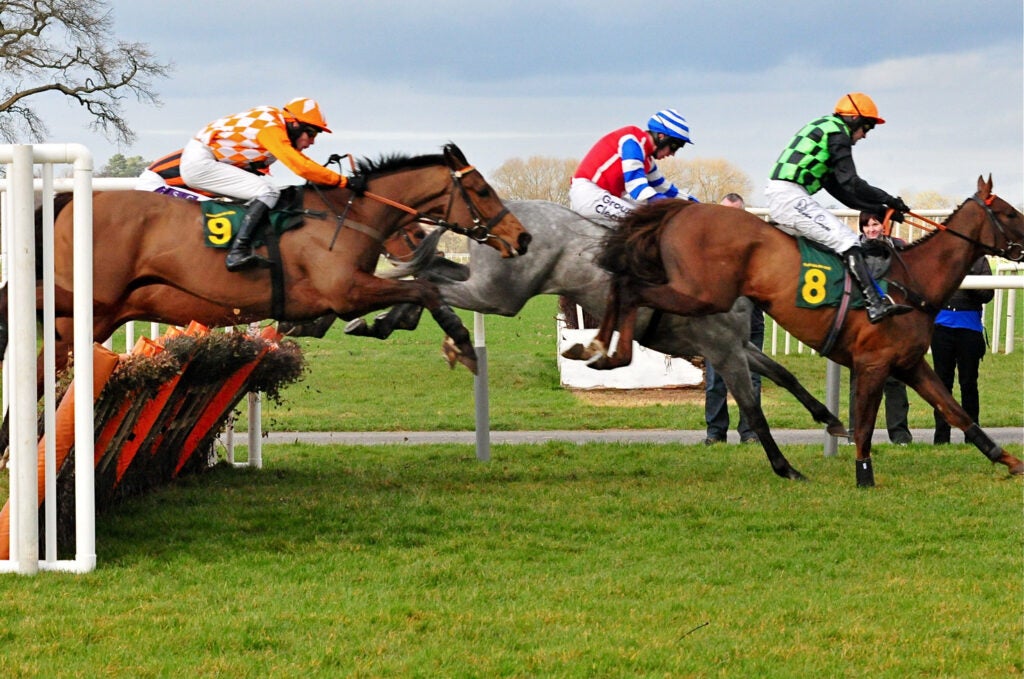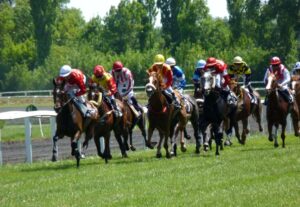Image by Flickr CC BY 2.0
Regular horse racing punters will know just how many influential variables are involved when selecting which runner to back in a particular race.
When horse racing betting online, information on form, track records, trainer stats and jockey data all help to inform your decisions pre-bet, however, weather is another crucial aspect that often goes a little under the radar.
If you can get a handle on how the elements impact horse racing conditions, your punts are likely to be better formed and below, we’ll discuss how weather conditions can shape outcomes at the track.
Why weather matters in horse racing
Weather conditions in the UK and Ireland, in particular, are incredibly volatile, changing between sweeping winds and torrential rains to unseasonal bursts of sun in an instant.
It really is a “four seasons in a day” sort of vibe in the British Isles and the weather plays a major role in horse racing. Hot and dry weather, for instance, will harden ground underfoot, while rain softens things up, making for looser footing.
Strong winds and colder temperatures meanwhile, also have a notable impact on conditions, and can be problematic for horses who thrive in warmer climes.
Weather and the track surface are inexorably linked in horse racing, with horse physiology, jockey tactics all influenced by the environment.
The Track Surface (“Going”) and Weather
If you read horse racing tips or listen to any pre-race analysis, you’ll commonly hear the term “the going”, which refers to the conditions of a track underfoot.
Largely impacted by the weather, turf, dirt and synthetic surfaces all react in different ways, depending on the elements on the day.
A sudden downpour can turn a turf course into a boggy mire, slowing down horses that are accustomed to firmer ground.
Rainfall causes the track to absorb water, resulting in softer or heavy going. This means that the horses will have to work that bit harder with every stride. That suits some stronger runners, but works against others who toil when the ground becomes looser or muddier. On turf tracks, this is a particularly potent determiner.
In contrast, long dry spells, particularly evident through spring and summer months, can cause turf to become firmer. Dirt tracks become very fast when this happens, though safety concerns do arise due to the lack of cushioning for competing horses’ hooves.
The warmer it gets, the less “give” is in the ground underfoot. Again, this suits some horses but works against others, who are more comfortable when the ground is softer.
Other Weather Factors: Temperature, Wind, Humidity
Weather effects on horse racing have a wider scope than just wet or dry weather. Let’s take a closer look at some of the other elemental impacts involved throughout the racing year.
Heat & Humidity
When ambient temperatures are high in the summer months, the extra humidity can put horses under increased stress.
Alongside coping with the rigours of running on harder ground, there are other physiological impacts to consider when heat and humidity are high.
Horses cool themselves via sweating and evaporation when running and on hot days, their thermoregulatory system can really feel the pressure.
Cold & Frost
At the opposite end of the spectrum, cold temperatures bring their own issues. Muscle stiffness, slower warm-ups and risk of poor footing on frozen ground are all pitfalls to look out for through the colder Autumn and Winter racing seasons.
When weather conditions get particularly bad, with snow or sub-zero wind chill, race days can be delayed or even cancelled in some circumstances to protect the safety of horses and jockeys.
Wind
Wind is another powerful factor in horse racing. A headwind along the home straight forces horses to expend more energy, especially runners who are in the lead and forced to break the breeze themselves.
Conversely, a tail-wind has benefits for horses playing catch up and can provide an extra push for runners mounting a late run from deep.
Strong gusts can also be a major inconvenience to jockeys in terms of visibility and handling. Imagine trying to steer a horse down a straight with a troublesome crosswind cutting across the track.
Again, when the wind gets out of hand, meetings can be cancelled for safety reasons.
Weather and horse racing: from a betting perspective
Anyone planning a flutter at the track or horse racing betting online needs to factor the weather and track conditions into their betting strategy.
The weather, as we discussed above, can have a significant impact on how horses perform, whether positively or negatively, and acknowledging that influence can help sharpen your decisions when attacking the bookmakers’ markets.
Here are some things to consider:
Consider meeting cancellations or postponements: Particularly in extreme weather (flooding, severe wind), meetings might be called off. That’s a risk in both betting and logistics, so keep an eye on those forecast updates!
Know the terrain preference of each horse: Some horses thrive on soft/heavy going, others only perform when conditions are good/firm. Dig into historical performance in different weather conditions to find patterns.
Monitor weather forecasts and last-minute changes: A surprise deluge can change the going significantly and therefore the odds of a given race. Early betting before odds shift due to changing weather may offer better value.
Watch odds adjustments due to weather: When conditions change (e.g., rain making the going heavy), odds may shorten for horses who thrive in such settings. Recognising such shifts early can be advantageous in terms of prices.
Combine weather + ground + horse profile: It’s probably not enough to just pick a horse good on “soft” going. It’s a good idea to check that the expected going aligns with predicted weather too.



